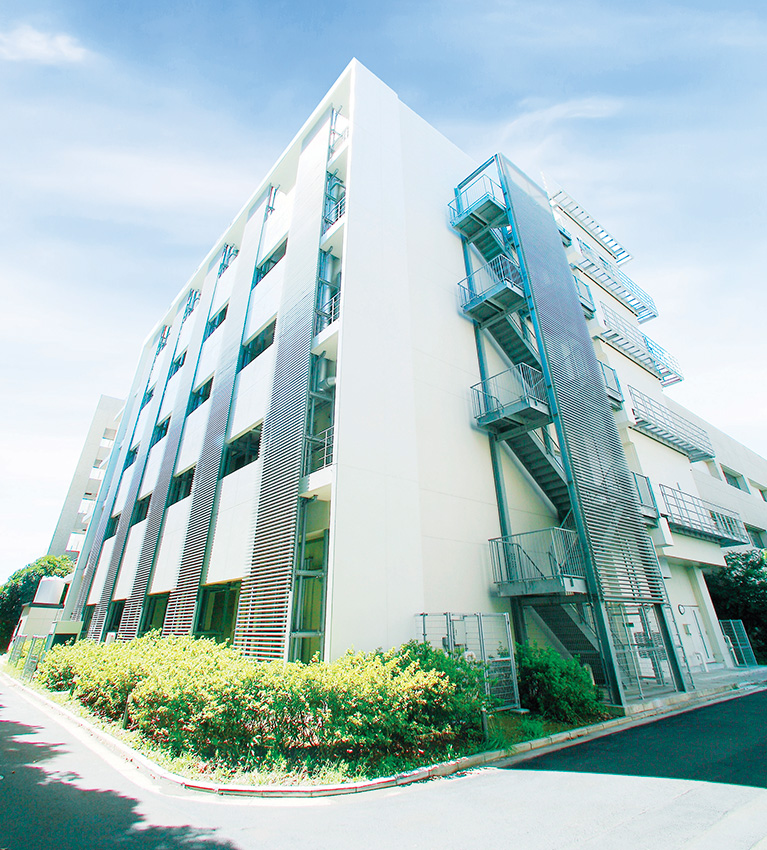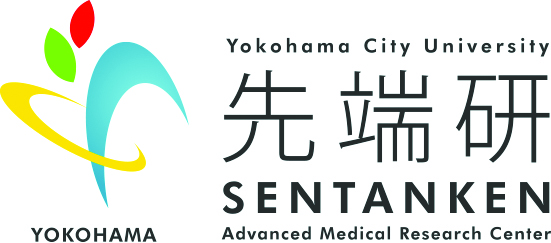Research
Advanced Medical Research Center
Advanced Medical Research Center(SENTANKEN)conducts basic studies aimed at overcoming cancer and lifestyle diseases and translational researches which applies the scientific finding to clinical medicine. It has three omics centers – genomics, proteomics, cellomics –and a biobank, collaborates within YCU and with other research institutions, and promote translational researches. AMRC is also involved in a number of R&D, working with the industry. Our goal is to make our research findings available to the society without delay.
Outline, Structure & Function of the Advanced Medical Research Center >
Outline, Structure & Function of the Advanced Medical Research Center >

RESEARCH > ADVANCED MEDICAL RESEARCH CENTER
Message from the Director
The Advanced Medical Research Center (SENTANKEN) of Yokohama City University(YCU) was established in 2006. The assignment of SENTANKEN is to facilitate advanced medical research associated with diseases such as cancer and lifestyle-related diseases. SENTANKEN is focused on basic researches in the field of genomics, proteomics and cellomics, as well as translational researches, which can fill the gap between basic and clinical researches, and promotes not only intramural collaboration but also between government, industry and academia.
Our goal is to make an attractive YCU that can contribute to the community by delivering the research outcomes of our basic and clinical researches promptly to the citizens of Yokohama and by connecting these activities for the revitalization of industries in Yokohama.
Our goal is to make an attractive YCU that can contribute to the community by delivering the research outcomes of our basic and clinical researches promptly to the citizens of Yokohama and by connecting these activities for the revitalization of industries in Yokohama.

Professor Atsushi Nakajima
Director, Advanced Medical Research Center
Research News
2023-06-07
There are many causes of cerebellar ataxia (CA) including neurodegeneration and autoimmunity. We detected antiseizure-related 6 homolog-like 2 (Sez6l2) antibody from the serum of a patient with subacute CA.1 In this study, we conducted an 11-year follow-up of a previously reported female (case 1)1 and reported two new cases (case 2 and case 3) of Sez6l2 antibody-positive CA in Japan (online supplemental table 1).
2023-05-19
Background
Birt-Hogg-Dubé (BHD) syndrome, caused by germline alteration of folliculin (FLCN) gene, develops hybrid oncocytic/chromophobe tumour (HOCT) and chromophobe renal cell carcinoma (ChRCC), whereas sporadic ChRCC does not harbor FLCN alteration. To date, molecular characteristics of these similar histological types of tumours have been incompletely elucidated.
2023-05-17
The excitatory glutamate α-amino-3-hydroxy-5-methyl-4-isoxazole propionic acid receptors (AMPARs) contribute to epileptogenesis. Thirty patients with epilepsy and 31 healthy controls are scanned using positron emission tomography with our recently developed radiotracer for AMPARs, [11C]K-2, which measures the density of cell-surface AMPARs.

Contact info
sentan@yokohama-cu.ac.jp

